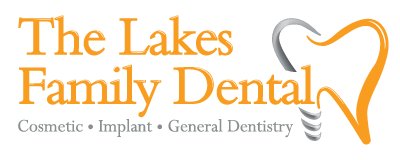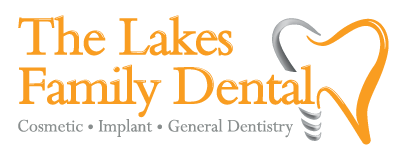What Causes TMJ?
Symptoms of TMJ
Can't Call Us Now?
TMJ Page
TMJ Treatment Options
Dr. Alvarado may recommend one or a combination of the following TMJ treatment options:
- Bite adjustment (occlusal adjustment)
- Botox® to relieve tension and jaw pain
- Jaw relaxation exercises
- Splint to reduce teeth grinding
- Cortisone shots to relieve inflammation
- Jaw joint replacement surgery with an artificial implant
Undergoing TMJ Therapy at Our Practice
TMJ Treatment Frequently Asked Questions
What is TMJ Disorder?
TMJ disorder, or temporomandibular joint disorder (TMD), refers to a range of conditions that affect the temporomandibular joint (TMJ) and the muscles surrounding it. The TMJ is a hinge that connects your jawbone to your skull, allowing for essential jaw movements such as speaking, eating, and breathing. When dysfunction occurs in this joint, it can lead to pain, discomfort, and difficulties in moving your jaw. The disorder is often associated with jaw pain, headaches, clicking or popping sounds in the jaw, and neck pain. TMJ disorders can significantly impact day-to-day life, and treatment is essential to alleviate symptoms and restore function to the jaw.
What Are the Symptoms of TMJ Disorder?
Symptoms of TMJ disorder can range from mild to severe and can affect different areas of the head and neck. Some of the most common symptoms include:
- Jaw Pain or Tenderness: This can occur while chewing, speaking, or even at rest. The pain may be constant or intermittent.
- Clicking, Popping, or Grating Sounds: These noises may be heard when opening or closing the mouth. Often, it is a sign that the joint is misaligned or the cartilage inside the joint is damaged.
- Headaches: TMJ disorder can cause tension-type headaches or migraines, particularly in the temples or the base of the skull.
- Ear Pain or Fullness: Some individuals with TMJ experience earaches, a sensation of fullness in the ears, or even tinnitus (ringing in the ears), which can mimic an ear infection.
- Limited Jaw Movement: You may experience difficulty opening your mouth wide or a feeling of your jaw "locking" when attempting to move it.
- Facial Pain or Discomfort: This can spread throughout the jaw, cheeks, and even the neck or shoulders.
- Neck or Shoulder Pain: Since the TMJ is closely connected to these areas, it’s not uncommon to experience tension in the neck or shoulders as a result of TMJ dysfunction.
These symptoms may come and go or become chronic, and the severity can vary from one person to the next.
What Causes TMJ Disorder?
The causes of TMJ disorder can be multifactorial, meaning that there is no single cause, and different factors can contribute to the condition. Common causes include:
- Jaw Injuries: Trauma or injury to the jaw, head, or neck area can lead to the development of TMJ disorder.
- Teeth Grinding or Jaw Clenching: Often caused by stress, anxiety, or even sleep disorders like sleep apnea, chronic teeth grinding (also known as bruxism) can put immense pressure on the TMJ, causing inflammation and pain.
- Misalignment of the Teeth or Jaw (Malocclusion): If the teeth are not properly aligned, it can cause strain on the jaw joints as they attempt to compensate for the improper bite.
- Arthritis: Osteoarthritis or rheumatoid arthritis can affect the TMJ, just as it affects other joints in the body, leading to inflammation and pain.
- Posture Issues: Poor posture, especially from sitting for long periods or working at a desk, can cause tension in the jaw and neck muscles, which can lead to TMJ symptoms.
- Stress and Anxiety: Stress is a major contributor to TMJ disorder, as it can lead to unconscious jaw clenching or grinding, especially during sleep.
In some cases, no clear cause is identified, and the symptoms may develop gradually without any obvious trigger.
How is TMJ Disorder Diagnosed?
Diagnosing TMJ disorder typically involves a comprehensive physical exam and a detailed history of symptoms. Your dentist or healthcare provider will:
- Palpate: The dentist will gently press the jaw and TMJ to check for tenderness, swelling, or any irregularities.
- Evaluate Jaw Movement: The dentist will ask you to open and close your mouth, as well as move your jaw side to side, to assess any difficulty or pain during these motions.
- Examine Your Bite: Your dentist will check if your teeth align properly when your mouth is closed and assess how the upper and lower teeth fit together.
- Imaging Tests: In some cases, X-rays, MRIs, or CT scans may be used to visualize the joint, the surrounding tissues, and the bones, which can help identify underlying problems such as structural damage, misalignment, or arthritis.
These steps allow the healthcare provider to determine whether TMJ disorder is the cause of your symptoms and to rule out other conditions that may have similar symptoms, such as ear infections or dental issues.
How Can a Dentist Treat TMJ Disorder?
Dentists play a critical role in diagnosing and managing TMJ disorder. The treatment approach depends on the severity of the disorder and the specific symptoms you're experiencing. Some of the most common treatments include:
- Oral Appliances (Nightguards or Splints): These devices are custom-made to fit your mouth and can help reduce the stress on the TMJ by preventing teeth grinding and clenching during sleep.
- Bite Adjustments: If misalignment of the teeth is contributing to TMJ symptoms, your dentist may recommend orthodontic treatment or other dental procedures to correct the bite.
- Physical Therapy: Targeted exercises can help strengthen the muscles around the TMJ and improve flexibility, which may reduce pain and discomfort.
- Medications: Dentists may prescribe medications such as pain relievers, anti-inflammatory drugs, or muscle relaxants to help alleviate pain and reduce muscle tension.
- Jaw Exercises: Gentle, dentist-guided jaw exercises can help improve the range of motion and relieve tension in the jaw muscles.
For more severe cases, your dentist may refer you to a TMJ specialist or oral surgeon.
Are Oral Appliances Effective for TMJ Treatment?
Yes, oral appliances are one of the most common and effective treatments for TMJ disorder, especially for people who grind their teeth at night or clench their jaws. These devices help realign the jaw and reduce pressure on the TMJ. Nightguards, for example, can protect the teeth from grinding, and other types of splints can help reposition the jaw to relieve tension in the muscles. Many patients report significant improvements in symptoms, such as pain, headaches, and jaw discomfort, after using these devices consistently.
Is TMJ Disorder Permanent?
In many cases, TMJ disorder is not permanent and can be managed effectively with treatment. Some individuals experience only temporary symptoms, which resolve with conservative treatments such as oral appliances and lifestyle changes. However, for others, TMD can be a long-term condition that requires ongoing management. Early diagnosis and treatment can help prevent the condition from worsening, and many people find that their symptoms improve significantly with appropriate care.
Can Stress Make TMJ Symptoms Worse?
Yes, stress is a significant factor in the development and exacerbation of TMJ symptoms. Stress often leads to muscle tension, which can result in jaw clenching or grinding, both of which put extra strain on the TMJ. Managing stress through relaxation techniques, exercise, and mindfulness can help reduce the frequency and severity of TMJ flare-ups. Practicing stress management can also help improve overall well-being and prevent further damage to the jaw joint.
What Are Some Lifestyle Changes That Can Help With TMJ Disorder?
Several lifestyle changes can help alleviate TMJ symptoms, including:
- Avoiding Hard Foods: Chewing hard or sticky foods can put additional strain on the jaw. It's advisable to avoid such foods or chew them slowly and carefully.
- Warm or Cold Compresses: Applying warm compresses to the jaw can help relax the muscles, while cold compresses can reduce swelling and pain.
- Good Posture: Maintaining good posture, especially when sitting for long periods, can help reduce strain on the jaw muscles and neck.
- Relaxation Techniques: Practicing deep breathing, meditation, or yoga can help reduce stress and prevent jaw clenching.
- Jaw Exercises: Gentle exercises, when guided by a professional, can help improve jaw function and reduce stiffness.
These simple changes can often provide significant relief from TMJ symptoms.
How Can I Schedule a Consultation for TMJ Treatment in Edinburg, TX?
If you’re experiencing symptoms of TMJ disorder, it’s important to seek professional care. The Lakes Family Dental offers personalized treatment plans for TMJ treatment in Edinburg, TX. Dr. Alvarado and our team will work with you to diagnose your condition and recommend the most effective treatment options. Contact us today to schedule your consultation and begin your journey to relief.



